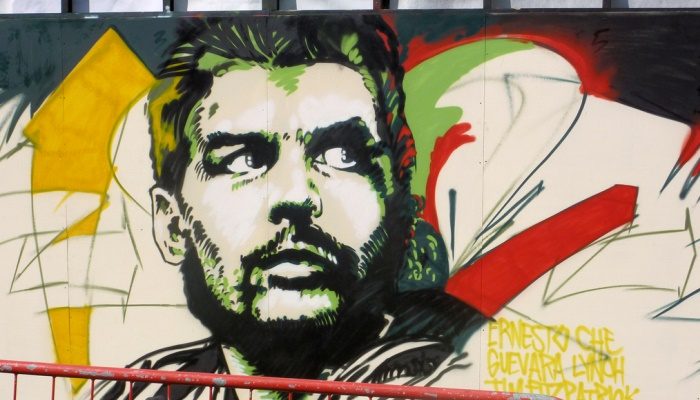
Che, My Brother
by Juan Martin Guevara and Armelle Vincent
Polity Press, Cambridge, UK, & Malden, MA, 2017
This book is a surprisingly valuable addition to a somewhat variable literature on Che Guevara. That surprise comes from the fact that, with one or two prominent exceptions (Jon Lee Anderson’s fine biography, Andrew Sinclair’s excellent political study in the long-lamented Fintana Modern Masters series published in 1970, and, more recently, Helen Yaffe’s study of Che as the prosaic-sounding Minister of the Economy in the early 1960s), much that is written on him tends to be either hagiography or polemic, romanticisation or sensationalism. Given that this account is written by Guevara’s (much) younger brother, we can be forgiven for fearing the worst: will it be either a warts-and-all ‘inside’ story or (worse still) a vicarious exercise in publicity-seeking?
In fact, the reality is that the book falls into none of those traps: instead, what we get is an honest, low-key, but essentially sympathetic picture of a more human person, within the context of his family and his country of origin, Argentina. Moreover, only half of the book is in fact about Che, who actually flits in and out of the narrative. As Juan Martin recounts Che’s trajectory alongside little studies of his parents and family, he gives us pertinent and astute observations of Cuba (in the time of Che and afterwards, to the present day), together with an account of what happened to and in Argentina and of his own protagonism in the politics of opposition there, from the radical Left, in the dark days after 1974. Curiously, although that parallel history takes us away from Che, it gives the whole book an authenticity and seriousness that help frame the otherwise basically ‘known’ Che story.
That said, even this account gives us something new: family events and anecdotes that do tell us a little more about what shaped Che and why his path to the Left was relatively inevitable, and even the revelation that, after the debacle of the post-Granma dispersal and massacre of the recently-landed would-be Cuban rebels in early December 1956, it was his family who – at the end of December, while Che was in the throes of escaping from Batista’s forces and setting up a base in the Sierra – learned of Che’s survival from a letter written by him, which predated by two months the famous interview with Herbert Matthews which disproved Batista’s claims about the rebels’ death. Even then, Che, it seems, was concerned to let his family know that he was alive and well. That said, that particular Che (the son) soon became the rigorously committed and even puritanically self-sacrificing rebel leader who, after January 1959, eschewed the trappings of power and the duties of love and the attention of and to family, to pursue his ‘anointed’ path. In fact, the account of the early days of the Revolution in Havana tell us much about the heady and chaotic flavour of that process, even at the top of the new decision-making structures; for that alone, this book gives us something new.
Hence, this is no hagiography but it also shows few warts: brotherly sympathy leads Juan Martin to be honest, but to conserve much of Che’s memory as a much-loved, if overwhelming, brother. Indeed, the book’s style reinforces those characteristics: the writing is almost that of a journal, notes written in a relaxed and reflective way, weaving in stories, observations, and family details. It is a self-confessional account of the Argentina which Che left behind but then also helped shape by creating both the Cuba which thereafter frightened the Latin American military and the threat from a pro-Cuba guerrilla-based Left, which ultimately led to harsh military rule across the continent.
What we are left with, therefore, is both a useful and highly readable addition to the ‘good’ literature, which succeeds in telling us something more subtle than the tendency to one-dimensional studies or diatribes, but which also gives us a genuine picture of the impact of Che the brother who metamorphosed into Che the mythical hero, the impact on those around him and also on the whole continent. The real protagonist here, to some extent, is actually the author, Juan Martin, who, on the outside (but initially at least, on the inside), watched Cuba’s and Che’s fate unfold from a distance, but who has since tried to remain faithful to the principles that drove his brother, without romanticisation and starry-eyed admiration.